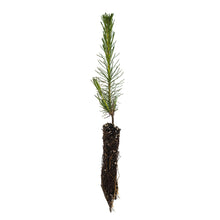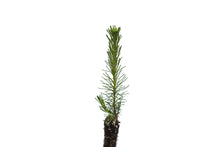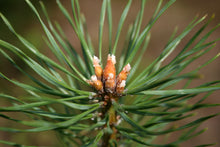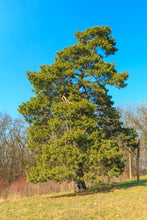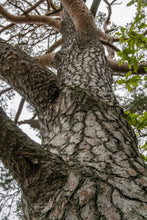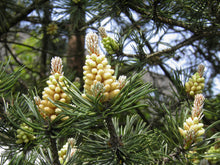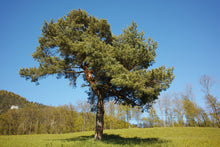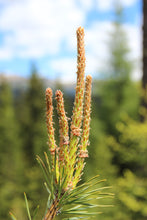
Pinus sylvestris
-
Grow your own Scotch Pine, a popular Christmas Tree species and the most extensively distributed of the world's pines!
- 100% guaranteed
- Seed-grown on California's Redwood Coast
- Transplanting and care instructions included
 |
Moisture Medium |
 |
Cold Hardiness -40°F |
 |
Light Full Sun / Partial Shade |
 |
Size 40 – 60' tall / 20 – 40' spread |
 |
Lifespan 300 yrs |
 |
Growth Rate Medium |
 |
Drought Tolerance High |
 |
Wind Resistance High |
About Scotch Pine
Occurring in Northern Europe, Western Asia, and Northeastern Siberia, Scotch Pine (Pinus sylvestris) is the most extensively distributed of the world's pines, with a habit that varies from squat and bushy to tall and slender. A popular Christmas Tree species as well as landscape tree, Scotch Pine features showy orange to red-tinged bark, sage-green to bluish foliage, and 2 inch-long reddish cones.
Also known by the common names Scots Pine, Scotch Fir, Northern Pine, and Deal Wood, this tree features a straight, well-branched pyramidal form in its youth, and takes on an irregular, open, and picturesque silhouette with sparse, drooping branches in age. Scotch Pines can grow up to 150 feet tall, but are usually closer to 100 feet. It is a highly wind-resistant species that can grow virtually anywhere.
About Jonsteen's Seedlings
All of our trees are seed-grown at our nursery on California's Redwood Coast, which is inspected monthly and licensed by the California Department of Agriculture. Trees can provide a natural barrier against high winds, temperatures, noise pollution and soil erosion, all while benefiting local air quality, wildlife and property values — a Jonsteen seedling will only grow in value and beauty!
About Jonsteen's 100% Guarantee
All of our trees are guaranteed to arrive healthy and in good condition. If your tree perishes despite your honest efforts, we will be happy to replace it with a small-sized seedling for just the cost of shipping/handling. You can learn more about our guarantee and tree replacement policy here.
Seedling Size Chart: Small
Due to the dynamic nature of actively growing trees, as well as the tremendous variation between species’ growth rates, we rely on the cubic volume of a seedling’s root mass to determine its “size” (Small / Medium / Large / XL). Within each size there is minor variance — the dimensions provided here represent the category minimum. If exact measurements are essential, please contact us about current stock.









